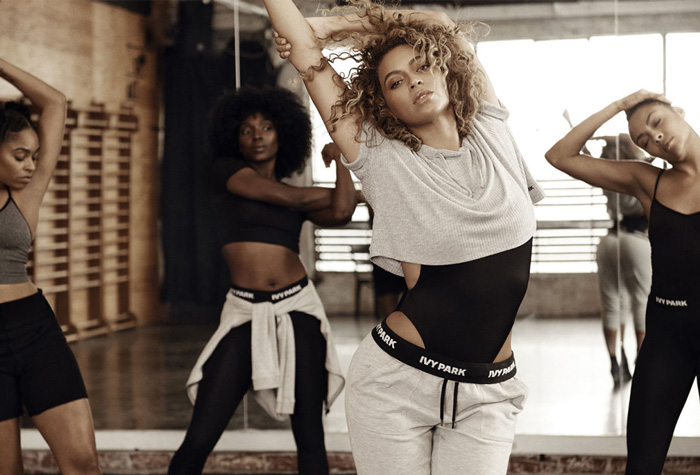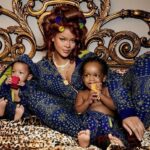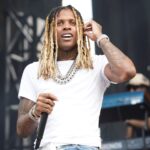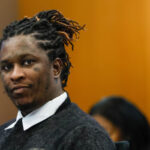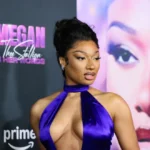It’s hard enough to make a hit song without wondering whether it’ll end up on the front of a hot sauce packet. But Drake can’t pretend he doesn’t know that’s a possibility. The 26-year-old rapper/singer born Aubrey Graham has a knack for writing songs whose lyrics turn up in unlikely places, from Twitter hashtags to the “funny-quote-goes-here” space on Taco Bell’s Border Sauce. (For evidence of the latter, see Drake’s Instagram, username Champagnepapi.)
Since he first popularized the millennial proverb and Oxford English Dictionary word of the year candidate YOLO (You Only Live Once) on the song “The Motto” two years ago, Drake has gone from being the hope of a new generation of rappers to the poet laureate of a new generation of adults. The phrase “started from the bottom” isn’t just the name of his 2013 Billboard Hot 100 top 10 single: It’s shorthand for denoting triumph despite inauspicious beginnings. “No New Friends” (featuring Rick Ross and Lil Wayne), the spiritual successor to “Started From the Bottom,” is more than a club banger-the saying itself is repellent for poseurs.
“I’ll be out trying to get a sandwich or something and the guy will say to me, ‘I’d give you a free drink with that, but you know, no new friends,'” Drake says with a laugh. “I swear I’m not sitting around going, ‘What’s the new meme going to be?’ But I do spend a lot of time when I’m writing, especially lately, trying to make something for people to live by. I’m trying to make anthems that are empowering to people, to find phrases that I haven’t heard before. I’m not just going to sit here and be like, ‘Fuckin’ bitches, getting money!'”
As he approaches his feverishly anticipated third major-label album, “Nothing Was the Same” (arriving Sept. 24), Drake’s ability to affect culture is at an all-time high. He’s sold 4.5 million albums since his 2010 debut, “Thank Me Later,” according to Nielsen SoundScan, and has appeared as a lead or featured artist in the top 10 of the Hot 100 a dozen times. With 10 No. 1s to his name, he’s topped Billboard’s Hot R&B/Hip-Hop Songs chart more than any artist in history, besting even his mentor and “Nothing Was the Same” sparring partner Jay Z. At this year’s Grammys he won best rap album for 2011 sophomore effort Take Care, beating out elder statesmen like Nas, Rick Ross and the Roots.
With all that momentum, it’s easy to see why Drake, and his tightly knit, proudly self-sufficient crew October’s Very Own, are starting to see the world as their oyster. Drake was always the brooding, introspective type, pondering the downsides of success even before he could finish boasting about achieving it. But these days, he’s more comfortable in his skin than he’s ever been before. For once he’s not anxious about finding love, or the haters, or the kind of music he wants to make. The guy who once infamously sang the words “I wish I wasn’t famous,” is, for the moment, happy.
“There’s a lot less sort of ambient ballad moments on this album where I’m searching or longing for something,” Drake says of Nothing Was the Same. “That sentiment is gone. Now I’m just kind of like, ‘You know, I’m 26, I don’t know what the fuck else I could be doing better than this. I feel incredible about how I’m able to support my family and friends and how supportive my family and friends have been of me.’
“A lot of people get on and it’s like they’re just waiting to get more on,” he continues. “They’re always waiting for a bigger moment to come. But I’ve started to realize that this is it, this is the moment. And it reads, you know? People come up to me now and they’re like, ‘Man, you look good! You look like you’re happy.'”
That inner peace has so far held up against external stressors. Drake says he’s made it a habit to ignore all commentary about him online, positive or negative. On any of the numerous occasions when another rapper tries to goad him into a public contest, he’s trying to let it roll off his shoulders. After hearing West Coast peer Kendrick Lamar’s instantly incendiary verse on Big Sean’s recent single “Control,” in which Lamar goes for the jugular of every rapper he deems a threat, including Drake, the latter says he
“went about my day, went and got dinner and kept it moving.”
“I didn’t really have anything to say about it,” Drake says of the verse, which has so far inspired responses from A$AP Rocky, Joey Bada$$, former Los Angeles Lakers coach Phil Jackson and too many others to count. “It just sounded like an ambitious thought to me. That’s all it was. I know good and well that Kendrick’s not murdering me, at all, in any platform. So when that day presents itself, I guess we can revisit the topic.”
Much of the energy Drake isn’t spending on worrying or feuds has gone into growing his October’s Very Own movement, the nucleus of which is his native Toronto. OVO started as a crew with a blog in 2008, a platform that served as a kind of post-Hypebeast, pre-Tumblr manifestation of its members’ taste in expensive shoes and indie music. But as Drake’s career took off, so did the crew’s ambitions.
In 2010 it celebrated the inaugural OVO Fest, an annual, Drake-centric summer festival in Toronto now backed by Live Nation. In the four years since its debut, the festival has drawn superstars including Kanye West, Stevie Wonder, Jay Z, Eminem, Lil Wayne, Sean “Diddy” Combs and a reunited TLC, to name a few.
Last year, Drake and OVO partners Oliver El-Khatib, Drake’s co-manager, and Noah “40” Shebib, his longtime producer/engineer/confidante, took a logical next step when they signed a deal to launch OVO Sound, a new label set up at Warner Bros. Records.
“We had talked about a label for years, but now is the time when it feels right,” says El-Khatib, 29. “We’re mature enough and we understand the business enough and we have the infrastructure now. It’s not so scary anymore.”
A rapper of a certain stature starting a vanity label has long been a well-worn trope in the industry-Hip-Hop Mogul 101. But in Drake’s case, he had already demonstrated a rare capacity to break new artists before the effort to monetize.
In 2011 he and El-Khatib catapulted the career of the mysterious, ambient R&B singer the Weeknd, now signed to Republic, when they promoted his debut mixtape, House of Balloons, on the OVO blog. In another A&R coup one year later, Drake assembled the second-most lucrative hip-hop tour of the year ($21.5 million gross, according to Billboard Boxscore) when he corralled rising stars in the genre including Lamar, A$AP Rocky, 2 Chainz, J. Cole and Meek Mill for 45 dates in the spring. Just this June, he gave nascent Atlanta trap trio Migos an unlikely candidate for song of the summer when he jumped on a remix of its luxury anthem “Versace,” which has subsequently climbed to No. 36 on the Hot R&B/Hip-Hop Songs chart.
“The goal is to continue to push the culture forward and form a team that can really contribute some great music to the world,” Drake says of OVO. “My ears are definitely out. I’m looking to hear the next wave.”
Drake himself is signed to another artist with a label-Lil Wayne’s Young Money Cash Money Billionaires imprint at Cash Money Records/Republic. So he’s intimately familiar with the potential pitfalls when one artist signs another.
“Being an artist that’s signed to another artist, I understand how much of a representation I am of that artist,” he says. “So I want to be extremely selective. I want artists who are, first and foremost, genuinely good people who are good to be around, and second, who have pure talent and will make me look smart for signing them [laughs].”

![Da Brat Marries Judy Dupart on 2.22.22 [PHOTOS]](https://hiphopucit.com/wp-content/uploads/2022/02/1645669184565-440x264.jpeg)
![Drake Reveals Photos of His Son Adonis [Photos]](https://hiphopucit.com/wp-content/uploads/2020/03/Drake-and-on-Adonis-HHUCIT.jpg)
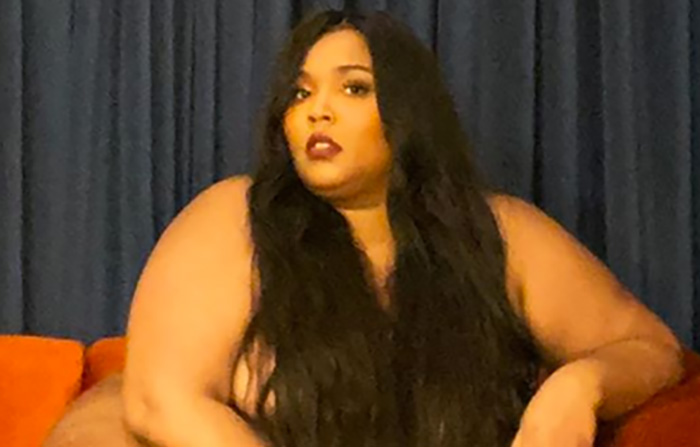
![Megan Thee Stallion – “BOA” [NEW VIDEO]](https://hiphopucit.com/wp-content/uploads/2024/05/Megan_Thee_Stallion___BOA__Official_Video__1_12_screenshot-440x264.jpg)
![Doechii Feat. JT – “Alter Ego” [NEW VIDEO]](https://hiphopucit.com/wp-content/uploads/2024/05/Screenshot-of-Doechii-and-JTs-Al-440x264.png)
![Young Thug Feat. Drake Drop – “Oh U Went” [NEW VIDEO]](https://hiphopucit.com/wp-content/uploads/2023/07/Young-Thug-and-Drake-1014x570-1-440x264.png)


